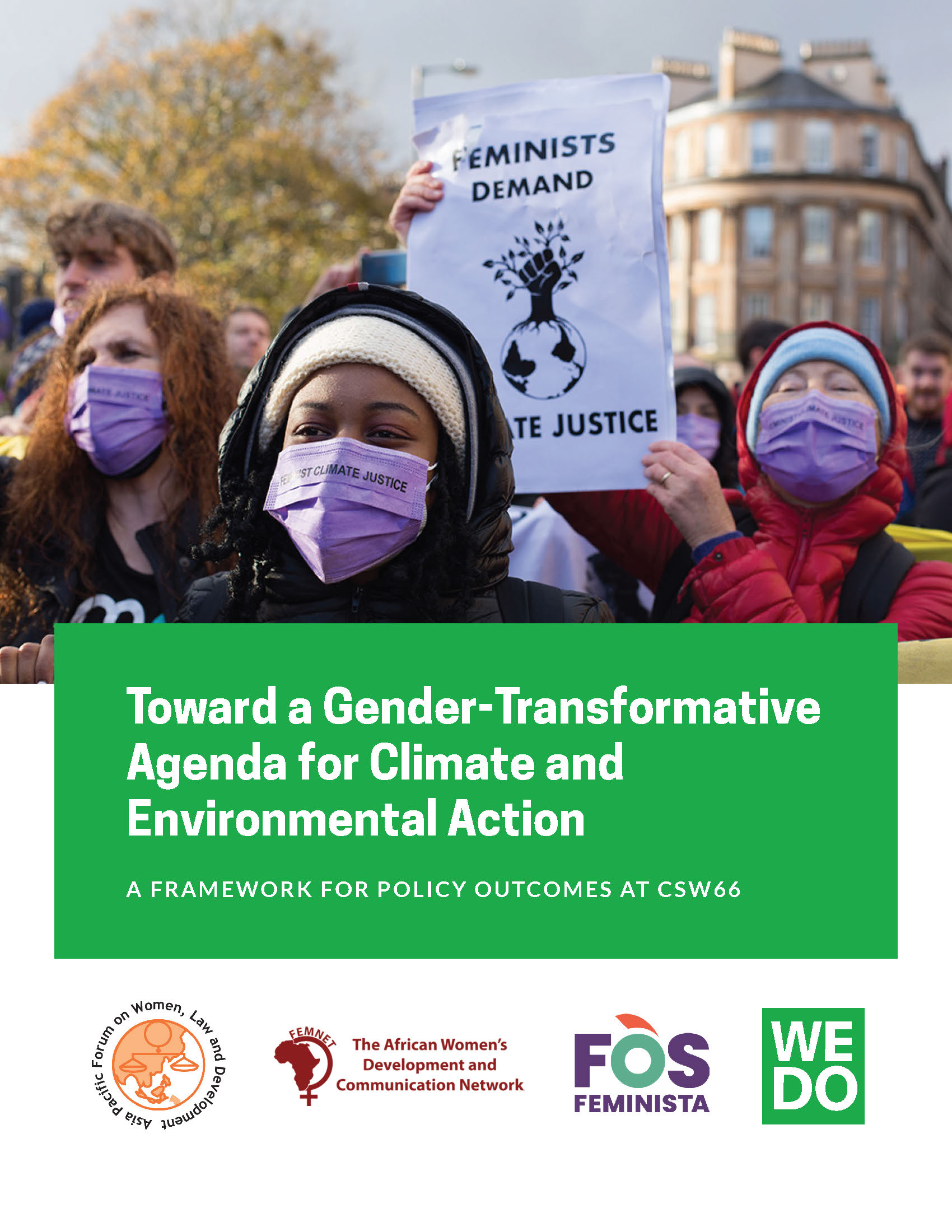A FRAMEWORK FOR POLICY OUTCOMES AT CSW66
In March 2022, the 66th session of the UN Commission on the Status of Women (CSW66) will address the interlinkages between gender equality and climate change, through substantive discussions and a negotiated outcome on the priority theme: Achieving gender equality and the empowerment of all women and girls in the context of climate change, environmental and disaster risk reduction policies and programmes. As feminists worldwide prepare to participate in this process, we outline the following necessary policy outcomes required to build an equitable and gender-transformative agenda for climate and environmental action.
Global feminists hereby put forward an agenda for CSW66 that takes the opportunity to fulfill some of the broken promises of last year’s UN climate change conference (COP26), emphasizing the fundamental systems change and global transformations of governance and economic structures required to shield our planet and its peoples from collective climate-induced disaster.
These demands build from our engagement at COP26 and through the Women and Gender Constituency of the UNFCCC, and have been outlined in collaboration with the Women’s Rights Caucus, a global coalition working to advance women’s human rights in their communities and together at the United Nations.
As a co-convener of the informal, CSW-focused Women’s Rights Caucus, as well as the Women and Gender Constituency of the UNFCCC, we are calling for attention to five key issues that can help fulfill some of the broken promises from COP26 and advance a progressive agenda toward gender and environmental justice:
- Recognize and redress loss and damage, centering the most marginalized peoples and communities in addressing climate impacts, particularly women and girls;
- Commit to ending the sovereign debt crisis, to ensure fiscal space for climate action and gender equality;
- Dismantle false solutions, particularly the emphasis on net zero and nature-based solutions in the climate and biodiversity arenas;
- Advance a just and equitable energy transition, shifting from a fossil-fuel based economy to a low-carbon and renewable energy system that upholds women’s human rights and advances social and environmental justice; and
- Fulfill historical obligations to provide gender-just climate finance that is predictable, adequate, transparent, accountable, accessible and in the form of grants rather than loans.
Cover photo by Annabelle Avril for WECF.



